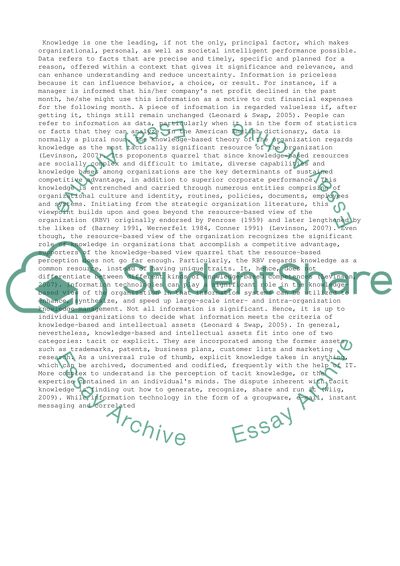Data, information, and Organizational knowledge Essay. Retrieved from https://studentshare.org/management/1471761-data-information-and-organizational-knowledge
Data, Information, and Organizational Knowledge Essay. https://studentshare.org/management/1471761-data-information-and-organizational-knowledge.


